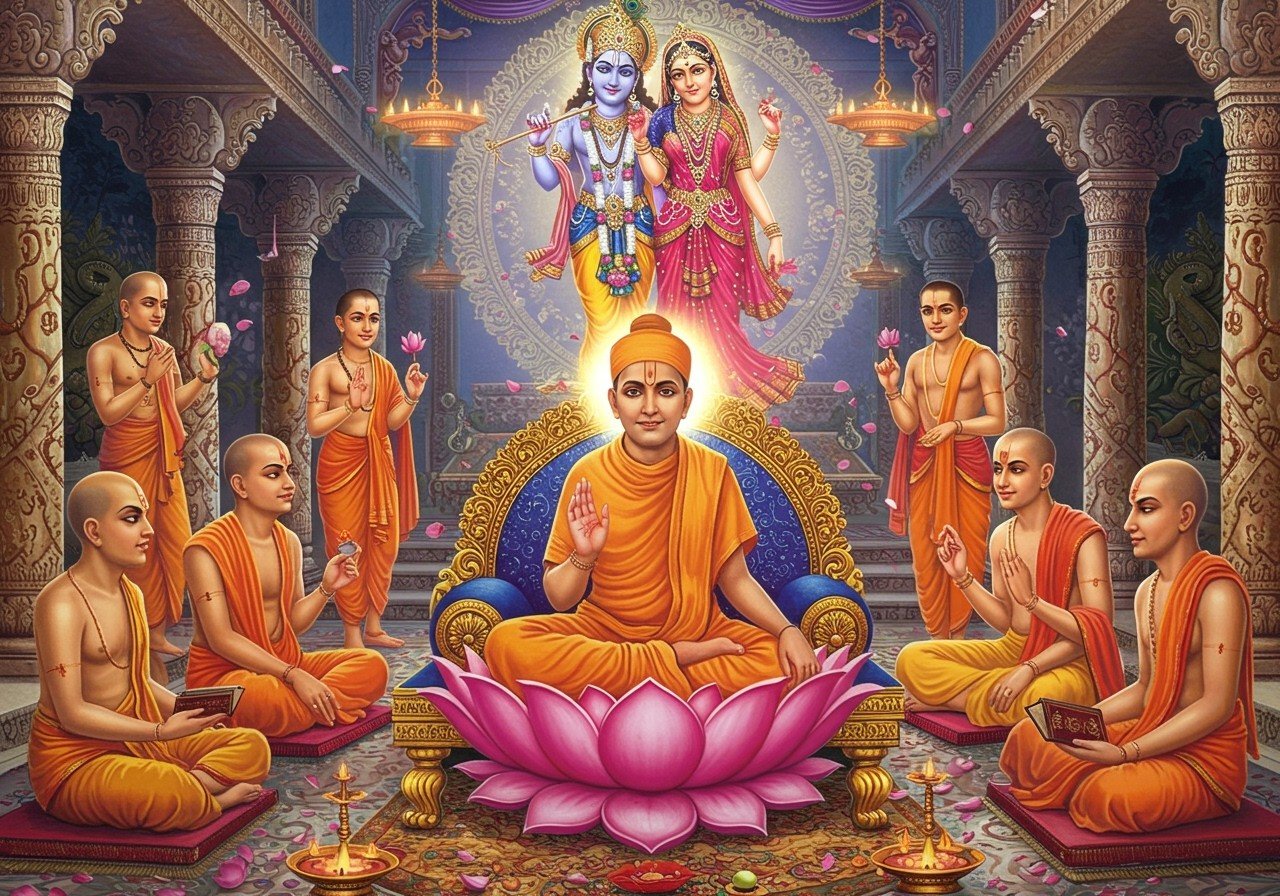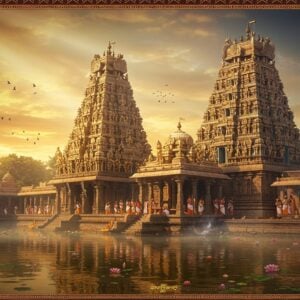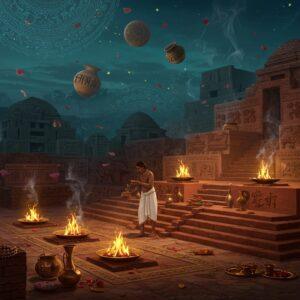
The Nimbarka Sampradaya, a revered Vaishnava tradition within Hinduism, invites us to explore the depths of devotion and spiritual wisdom. This tradition, also known as the “Teachings of Nimbarka,” offers a unique perspective on the relationship between the individual soul and the divine, emphasizing the loving worship of Radha and Krishna. By understanding its history, philosophy, and key figures, we can appreciate its profound impact on Indian culture.
Origins and Early Focus of the Nimbarka Sampradaya
The Nimbarka Sampradaya traces its origins back to the sage Nimbarkacharya, believed to have lived around the 11th or 12th century CE, though some sources suggest later dates. This tradition distinguishes itself through its Dvaitadvaita philosophy, also known as “dualistic non-dualism.” At its heart, the Nimbarka Sampradaya centers on the worship of Radha and Krishna, recognizing them as the ultimate essence of life and divine love.
Looking for authentic puja items? Poojn.in offers a wide selection of products for your spiritual practices.
The Philosophy of Dvaitadvaita: Balancing Duality and Unity
The core philosophy of the Nimbarka Sampradaya, Dvaitadvaita, presents a nuanced understanding of the relationship between the soul and God. It proposes that the soul and God are both distinct and inseparable, much like two sides of the same coin. This concept, known as “Bheda-Abheda” (difference and non-difference), suggests that while we maintain our individual identities, we are also fundamentally connected to the divine.
This intricate balance emphasizes that our true essence is intertwined with the divine, highlighting the potential for unity through devotion. Learn more about Hinduism’s rich history and the development of its diverse philosophical schools.
The Guru Parampara: Lineage of Spiritual Teachers
The Nimbarka Sampradaya’s rich lineage, known as the Guru Parampara, ensures the transmission of sacred knowledge and practices across generations. This unbroken chain of spiritual teachers starts with the divine incarnation Sri Hamsa, passing through the Four Kumaras to Narada Muni, and ultimately to Nimbarkacharya.
The lineage continued with twelve renounced Acharyas and eighteen Bhaktas, each contributing to the spread of devotional practices. Swami Sri Harivyasa Devacharya, a key figure, further popularized the devotion to Radha and Krishna through his poetic compositions.
Key Figures and Historical Locations
Nimbarkacharya’s teachings emphasize Bhakti Yoga as a direct path to realizing God. This path of devotion allows souls, initially one with God, to reunite with the divine through loving service and remembrance.
Nimbagram and Vrindavan stand as important centers for the Sampradaya’s followers. Some accounts also mention Mungi village near Paithan in Maharashtra as Nimbarkacharya’s birthplace.
Interested in exploring the worship of Radha Krishna? Discover beautiful deity idols and puja accessories at Poojn.in.
The Nimbarka Sampradaya Today
The Nimbarka Sampradaya continues to flourish in the modern world, adapting to contemporary contexts while preserving its core teachings. Spiritual leaders provide guidance and support to devotees, ensuring the relevance of ancient practices. The tradition has expanded globally, with temples and centers established in various countries. Digital platforms have become instrumental in sharing the Sampradaya’s teachings, making them accessible to a wider audience. Explore the significance of temples in Maharashtra and their role in preserving cultural heritage.
Conclusion
The Nimbarka Sampradaya represents a vibrant blend of devotion and philosophical inquiry, enriching the spiritual landscape of India for centuries. It stands as a testament to the power of Bhakti Yoga and the enduring pursuit of unity with the divine.


